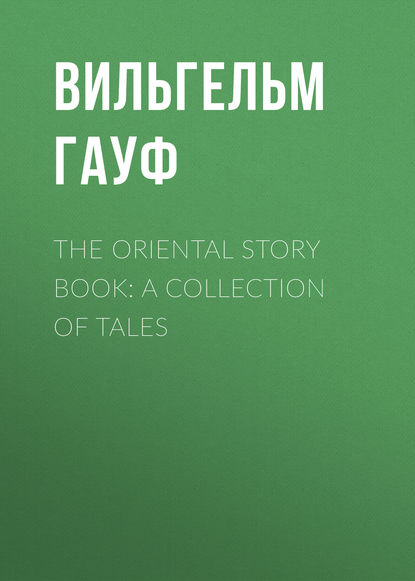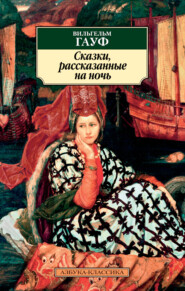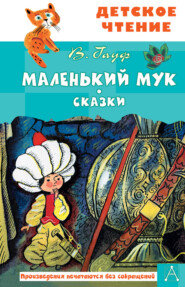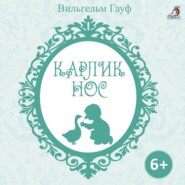По всем вопросам обращайтесь на: info@litportal.ru
(©) 2003-2025.
✖
The Oriental Story Book: A Collection of Tales
Настройки чтения
Размер шрифта
Высота строк
Поля
“I soon arrived in Florence, where I kept myself as private as possible; it was very difficult to put my plan in execution on account of the situation which my enemy occupied. The old Florentine had become governor, and thus had in his hand all the means of destroying me, should he entertain the slightest suspicion. An accident came to my assistance. One evening I saw a man in well-known livery, walking through the streets: his uncertain gait, his gloomy appearance, and the muttered ‘Santo sacramento,’ and ‘Maledetto diavolo,’ soon made me recognise old Pietro, a servant of the Florentine, whom I had formerly known in Alexandria. There was no doubt but that he was in a passion with his master, and I resolved to turn his humor to my advantage. He appeared much surprised to see me there, told me his grievances, that he could do nothing aright for his master since he had become governor, and my gold supported by his anger soon brought him over to my side. Most of the difficulty was now removed: I had a man in my pay, who would open to me at any hour the doors of my enemy, and from this time my plan of vengeance advanced to maturity with still greater rapidity. The life of the old Florentine seemed to me too pitiful a thing, to be put into the balance with that of my whole family. Murdered before him, he must see the dearest object of his love, and this was his daughter Bianca. It was she that had so shamefully wronged my brother, it was she that had been the author of our misfortunes. My heart, thirsting for revenge, eagerly drank in the intelligence, that Bianca was on the point of being married a second time; it was settled—she must die. But as my soul recoiled at the deed, and I attributed too little nerve to Pietro, we looked around for a man to accomplish our fell design. I could hire no Florentine, for there was none that would have undertaken such a thing against the governor. Thereupon Pietro hit upon a plan, which I afterwards adopted, and he thereupon proposed you, being a foreigner and a physician, as the proper person. The result you know: only, through your excessive foresight and honesty, my undertaking seemed, at one time, to be tottering; hence the scene with the mantle.
“Pietro opened for us the little gate in the governor’s palace; he would have let us out, also, in the same secret manner, if we had not fled, overcome by horror at the frightful spectacle, which, through the crack of the door, presented itself to our eyes. Pursued by terror and remorse, I ran on about two hundred paces, until I sank down upon the steps of a church. There I collected myself again, and my first thought was of you, and your awful fate, if found within the house.
“I crept back to the palace, but neither of Pietro nor yourself could I discover a single trace. The door, however, was open, and I could at least hope that you had not neglected this opportunity of flight.
“But when the day broke, fear of detection, and an unconquerable feeling of remorse, allowed me to remain no longer within the walls of Florence. I hastened to Rome. Imagine my consternation, when, after a few days, the story was everywhere told, with the addition that, in a Grecian physician, they had detected the murderer. In anxious fear, I returned to Florence; my vengeance now seemed too great: I cursed it again and again, for with your life it was purchased all too dearly. I arrived on the same day which cost you a hand. I will not tell you what I felt, when I saw you ascend the scaffold, and bear all with such heroism. But when the blood gushed forth in streams, then was my resolution taken, to sweeten the rest of your days. What has since happened you know; it only now remains to tell you, why I have travelled with you. As the thought that you had never yet forgiven me, pressed heavily upon me, I determined to spend some days with you, and at last to give you an explanation of what I had done.”
Silently had the Greek listened to his guest; with a kind look, as he finished, he offered him his right hand.
“I knew very well that you must be more unhappy than I, for that awful deed will, like a thick cloud, forever darken your days. From my heart I forgive you. But answer me yet one question: how came you under this form, in the wilderness? What did you set about, after purchasing my house in Constantinople?”
“I returned to Alexandria,” answered the guest. “Hate against all mankind raged in my bosom; burning hate, in particular, against that people, whom they call ‘the polished nation.’ Believe me, my Moslem friends pleased me better. Scarcely a month had I been in Alexandria, when the invasion of my countrymen took place. I saw in them only the executioners of my father and brother; I, therefore, collected some young people of my acquaintance, who were of the same mind as myself, and joined those brave Mamelukes, who were so often the terror of the French host. When the campaign was finished, I could not make up my mind to return to the peaceful arts. With my little band of congenial friends, I led a restless, careless life, devoted to the field and the chase. I live contented among this people, who honor me as their chief; for though my Asiatics are not quite so refined as your Europeans, yet are they far removed from envy and slander, from selfishness and ambition.”
Zaleukos thanked the stranger for his relation, but did not conceal from him, that he would find things better suited to his rank and education, if he would live and work in Christian, in European lands. With delight his companion looked upon him.
“I know by this,” said he, “that you have entirely forgiven me, that you love me: receive, in return, my heartfelt thanks.” He sprang up, and stood in full height before the Greek, whom the warlike air, the dark sparkling eyes, the deep mysterious voice of his guest, almost inspired with fear. “Thy proposal is intended kindly,” continued he; “for another it might have charms; but I—I cannot accept it. Already stands my horse saddled: already do my attendants await me. Farewell, Zaleukos!”
The friends whom destiny had so strangely thrown together, embraced at parting. “And how may I call thee? What is the name of my guest, who will forever live in my remembrance?” exclaimed the Greek.
The stranger gazed at him some time, and said, as he pressed his hand once more: “They call me ‘the lord of the wilderness;’ I am the Robber Orbasan!”
THE END
notes
1
Märchen represents the fairy or legendary tales, of which the Germans were at one time so fond.
2
The German “Almanach” corresponds in a measure with the English “Annual.”

















